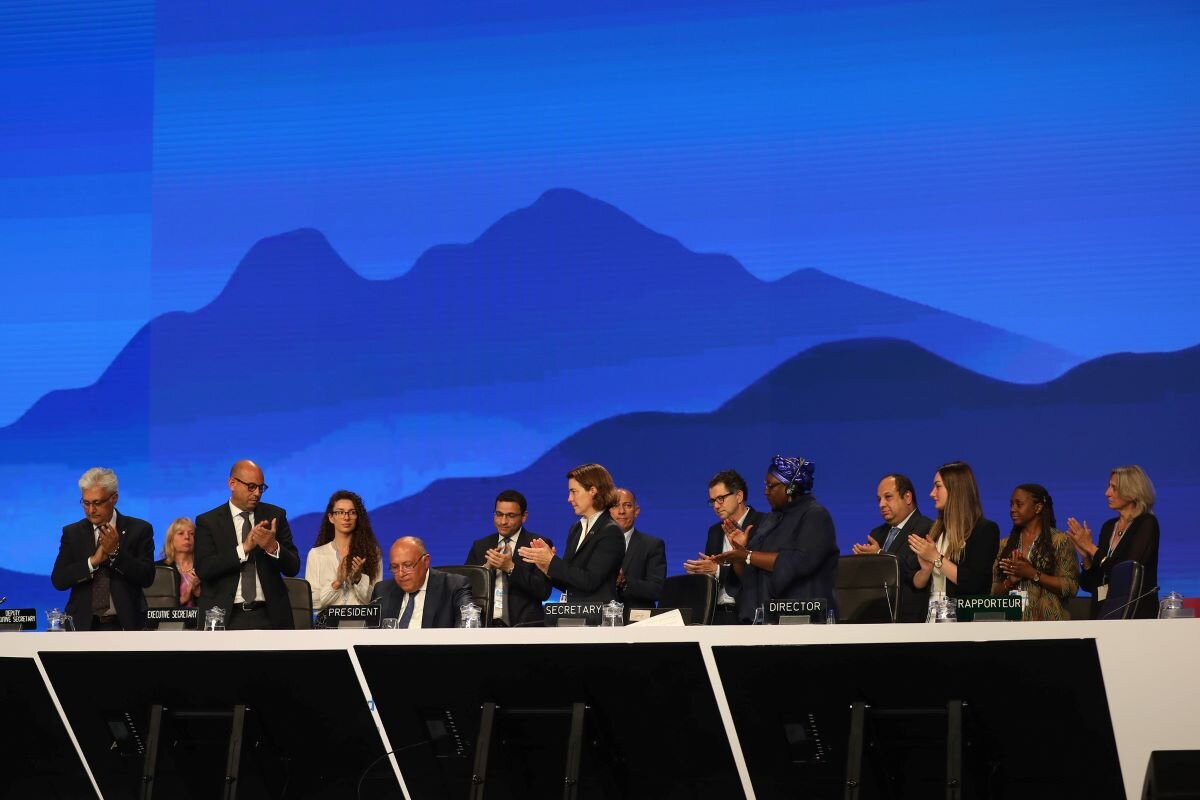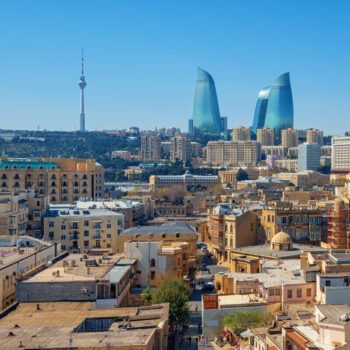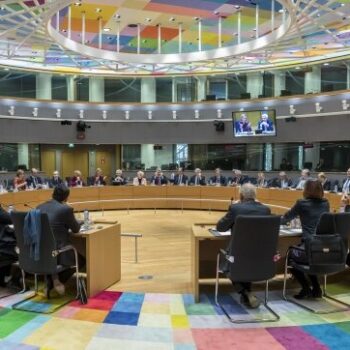- Countries have agreed to a deal at COP27, that offers a firm step forward with a historic loss and damage fund for responding to rising climate impacts, renewable energy singled out as the route to addressing the energy crisis, and strong calls to reform international finance institutions to unlock more finance and fiscal space for climate action along the lines of Barbadian PM Mottley’s Bridgetown Initiative.
- But inches forward leave little assurance on the acceleration needed to keep temperature rise below 1.5C. Tensions over ending the use of fossil fuels rose to the surface at COP27 but are left to the next years to fully address.
- Summary Press Conference – Mon 21 Nov; 15:30 GMT; 16:30 CET; 10:30 ET. Register here. E3G experts will reflect on how COP27 went, and what needs to happen going forwards in 2023 to secure climate action.
Story & Quotes
Overall
Leaders and ministers were tasked to come to Sharm el Sheikh ready to step up on responding to climate impacts and accelerating emissions cuts, amidst a multitude of compounding crises. The deal they agreed on acknowledges the urgency of climate action for addressing the linked challenges of food and energy security, but has left a long way to go to get on a path to climate safety. Political will delivered a big step forwards in addressing the impacts of climate change with the agreed Loss and Damage fund. But the small decisions secured on accelerating emissions cuts showed that politics is not yet grappling with the action needed to cut emissions for a climate safe pathway. On a positive note, the new political direction from leaders like Mia Mottley of Barbados and Emmanuel Macron of France, for transforming our finance institutions to better serve climate and linked goals, is clearly gaining traction and was solidified in the negotiated decisions.
Alex Scott, E3G Climate Diplomacy and Geopolitics Programme Lead said:
“Strong diplomacy from small, climate vulnerable countries, and late compromise led by Europe renewed the High Ambition Coalition to secure a few steps forward on climate action. Political leaders addressed climate impacts, but are still not up to the task of transitioning away from fossil fuels. In one crucial step forward, the deal makes strong calls for broader international finance system reform. While far beyond the decision-making power of the climate COP, this is a sign of the power of bringing small vulnerable countries like Barbados to the foreground – to lead the way through chaos.”
Alden Meyer, Senior Associate, Climate Diplomacy & Geopolitics said:
“While a big step forward was achieved at COP27 in addressing loss and damage, progress was minimal on raising mitigation ambition and scaling up climate finance. We leave Sharm El Sheikh having done way too little to shrink the huge gap in ambition between countries’ 2030 emissions targets and what’s needed to keep 1.5C alive. This critical task is slipping out of our grasp. If this doesn’t change, starting now, generations to come will look back in disbelief and anger at why we didn’t take the actions needed to safeguard their future.”
Loss and Damage
Climate impacts were the central thread at COP27, with a huge change in politics from last year, and remarkable diplomatic efforts in the last weeks. A historic step forward was taken by governments tonight: for the first time, a Loss and Damage fund and financial arrangements were established. The outcome also highlights the crucial role of MDBs and debt service suspension clauses, which will be key to ensuring new, additional, predictable and adequate finance for Loss and Damage. The fight is not over: details on who will contribute to the fund or on the accessibility to the financial arrangements will have to be negotiated in the upcoming years. But we can finally say Loss and Damage won fair recognition at COP27 – and that deserves to be celebrated.
Ines Benomar, E3G Researcher and Loss and Damage expert said:
“Through the leadership of vulnerable country groups, who pushed very hard for a tangible loss and damage outcome at COP27, we reached for the first time in 30 years a breakthrough agreement. It is not perfect, and leaves many questions unanswered. But it addresses the basic needs of developing nations, who have been calling for it for so long. The details will have to be ironed out over the next year(s), and it can result in a difficult process over the question of who pays, who receives and how vulnerability is defined. The burden of loss and damage, and how it affects developing countries, was long overdue and deserves to be recognized. But it is crucial to ensure 1.5 stays alive – or see losses and damages escalate.”
Finance
At COP27, building on the mood of the G20 and the momentum around the Bridgetown Initiative, the world recognised the need for transformation of the financial system in order to finance the transition and resilience needs of developing countries. However there was little new money on the table. Global climate finance for 2019-20 was noted as currently only 31-32% of the annual investment required, and Parties requested Multilateral Development Banks (MDBs) action a substantial list of reforms. The role of the private sector in financial system reform was noted, along with the importance of private sector accountability for net zero pledges and delivery.
Kate Levick, Associate Director for Sustainable Finance at E3G said:
“Finance issues were always going to be critical at this COP, and sure enough in Egypt they tested the UNFCCC process to its limits with a major gap between the expectations of different groups of countries on the provision of climate finance. Beyond the negotiated issues there was a consensus that current financial architecture and rules are not adequate to meet the climate challenge. The final outcome called for financial system reform, and made a particularly strong set of requests to the Multilateral Development Banks.”
Laura Sabogal, Policy Advisor for Sustainable Finance said:
“Against the increasing calls for systemic reform of the international financial system, COP27 put MDBs and IFIs in the spotlight. If we are to keep 1.5C alive we must build on the ambitious wording achieved and bring it to other fora to push these institutions to embrace their countercyclical nature and step up the financial support required. We must not forget the potential contribution of MDBs and IFIs extends beyond the – much needed – increase in their lending headspace. It also relates to their ability to influence policy development at the national and sub-national level, thus they can play a key role in supporting developing countries in establishing and ratcheting ambitious and feasible NDCs, LTS and National Adaptation Plans.”
Mitigation & Energy
Despite a last-minute push from the High Ambition Coalition to strengthen the coal phase down text to expand to all fossil fuels, the final COP27 outcome represents a disappointing standstill from Glasgow. The key language on accelerating efforts on coal phase down and fossil subsidy phase out are a cut and paste of commitments in the Glasgow Climate Pact.
Renewable energy was positively mentioned, including the USD 4 trillion p.a. investment required by 2030 to reach net zero emissions by 2050. Overall this represents an incremental advance on prior COP texts (renewable energy was last mentioned at COP21), and, together with the reference to just energy transition partnerships as a means to deliver deep and sustained GHG reductions, signals the clear direction of travel towards clean energy in response to both the energy and climate crises. However there were missed opportunities to set targets for renewable energy or energy efficiency, state a peak demand target, encourage further demand-side measures or highlight energy access needs, particularly in Africa.
Tom Evans, Policy Advisor and mitigation expert, said:
“These commitments were seen as relatively ambitious a year ago; but with ever more severe climate disasters, it’s clear that we needed COP27 to take a step forward, not just copy-paste the Glasgow Climate Pact. 1.5C does not live or die in a negotiating room, but COP27 has shown that the political will to drive the collaboration and investment needed to stay under that limit is still yet to be found. Building a strong and clear consensus around the urgency of emissions reductions is the critical challenge in the wake of Sharm El Sheikh; without this, future COPs are doomed to repeat the mistakes of the past.”
Camilla Fenning, Programme Lead for Fossil Fuel Transition said:
“We knew that COP27 would not focus on coal, unlike COP26 with its tagline of “Consigning Coal to History”. We needed at the very least to ensure there was no backsliding at COP27 on calls to accelerate coal phase down, and this commitment was preserved, as was the call to accelerate phase out of inefficient fossil fuel subsidies. Burning coal remains the biggest source of carbon emissions and thus the biggest threat to keeping 1.5 alive. We need to be much more ambitious in building political momentum and financial support for phasing out existing coal and ensuring no new coal plants are built. Accelerating renewable scale up and rolling out JETPs are critical steps. “
Annisa Sekaringtias, Senior Policy Advisor for the Clean Economy said:
“This is a critical decade and as an implementation COP, we needed clearer ambition on renewable energy and energy efficiency to actually get to 1.5C. Unfortunately the text missed that opportunity. The more than 770 million people still without access to electricity, mostly in Sub-Saharan Africa, were also barely mentioned at this African COP. Clean energy access, including for cooling and agriculture, would play a critical role in any net zero emission pathway and provide a strong foundation for adaptation, especially for vulnerable communities. We have been ignoring this for far too long.”
Adaptation
The science is clear – every fraction of a degree will push the limits of adaptation. COP27, being held in the most vulnerable continent to global warming, had the opportunity to raise political attention and push for adaptation action. The request for a report on the commitment to double adaptation finance – with space for developing countries to respond to that report – is a welcome boost of confidence around meeting that goal as well as significant contributions to the adaptation fund. However, the final deal does not reflect the urgency needed to support adaptation efforts worldwide, but in particular in the most vulnerable regions.
Carolina Cecilio, E3G Policy Advisor and Adaptation expert said:
“The so-called African COP had to give a strong, overdue political spotlight to adaptation – it did not deliver. Climate impacts are being felt across the world and affecting agriculture, forests, energy, health and oceans. Increasing the resilience of our people, ecosystems and economies will only be possible if adaptation is implemented effectively, and reaches the most vulnerable communities. We all know the window is closing, but COP27 should have blown the wind to keep it open.”
Agriculture
Despite food and agriculture moving up political agendas at COP27, parties missed an important opportunity to widen the mandate of the UNFCCC to cover food systems transformation in the Koronivia successor programme. Taking action across the entire food system – both supply and demand – is critical to rapidly reducing emissions at the pace and scale necessary to keep the world on a 1.5C pathway. Against a backdrop of rising hunger and increasingly severe climate impacts, parties must now use the mandate they have agreed – though limited – to keep food and agriculture firmly on the UNFCCC agenda at COP28.
Human rights
The tens of thousands of political prisoners in Egypt were invisible during COP27 but that does not mean that their fate went unnoticed. E3G joins others in civil society internationally and inside Egypt in demanding their release, and in deploring the human rights situation in Egypt more generally. Alaa Abd el Fattah is symbolic of those prisoners. E3G and others continue to demand his release and humane treatment. There can only be progress on climate goals in conditions where human rights and democracy are respected. Only in such conditions can populations be justly treated, and the necessary economic and energy policies be based upon consent. Respect for human rights and climate progress and justice go hand in hand.
Available for comment
Alex Scott, Programme Lead, Climate Diplomacy & Geopolitics, EN
Climate diplomacy
alex.scott@e3g.org | +44 (0)7482 750 760
Ines Benomar, Researcher, Climate Diplomacy and Risk & Resilience, EN, FR, IT
Loss and Damage and Adaptation Finance, Vulnerable Countries’ diplomacy
Ines.benomar@e3g.org | +32 490 11 33 19
Kate Levick, Associate Director, Sustainable Finance, EN
International and UK sustainable finance, public & private sector finance, financial initiatives
Kate.levick@e3g.org | +44 (0) 7860 861225
Tom Evans, Policy Advisor, Climate Diplomacy & Geopolitics, EN
COP27, Global Stocktake, mitigation ambition and implementation
Tom.evans@e3g.org | +44 (0) 7931 317 327
Camilla Fenning, Programme Lead, Fossil Fuel Transition, EN
Coal phase-out, energy transition, Southeast Asia and India
Camilla.fenning@e3g.org | +44 (0) 7961 047835
Carolina Cecilio, Policy Advisor, Risk & Resilience, EN FR PT
Loss and Damage, adaptation, and risk and resilience
Carolina.cecilio@e3g.org | + 32 497 49 69 68
Alden Meyer, Senior Associate, Climate Diplomacy & Geopolitics, EN
UNFCCC negotiations, mitigation ambition, climate finance and climate diplomacy
Alden.meyer@e3g.org | +1 202 378 8619
Nick Mabey, co-CEO and co-founder, EN
Climate diplomacy, foreign policy, macroeconomics, COP
Nick.mabey@e3g.org | +44 (0)7949 768 771
Notes to Editors
- E3G is an independent climate change think tank with a global outlook. We work on the frontier of the climate landscape, tackling the barriers and advancing the solutions to a safe climate. Our goal is to translate climate politics, economics and policies into action. About – E3G
- To receive updates and analysis from COP27 via E3G’s daily media WhatsApp broadcast, register here.
- E3G experts in geopolitics, finance and energy held a high-level press briefing on why the Sharm El Sheikh summit matters and its position within the wider setting of geopolitical fragmentation, energy security, and worsening climate impacts. Watch the recording here.
- For further enquiries please contact our media team at press@e3g.org or +44 (0) 7783 787 863.


